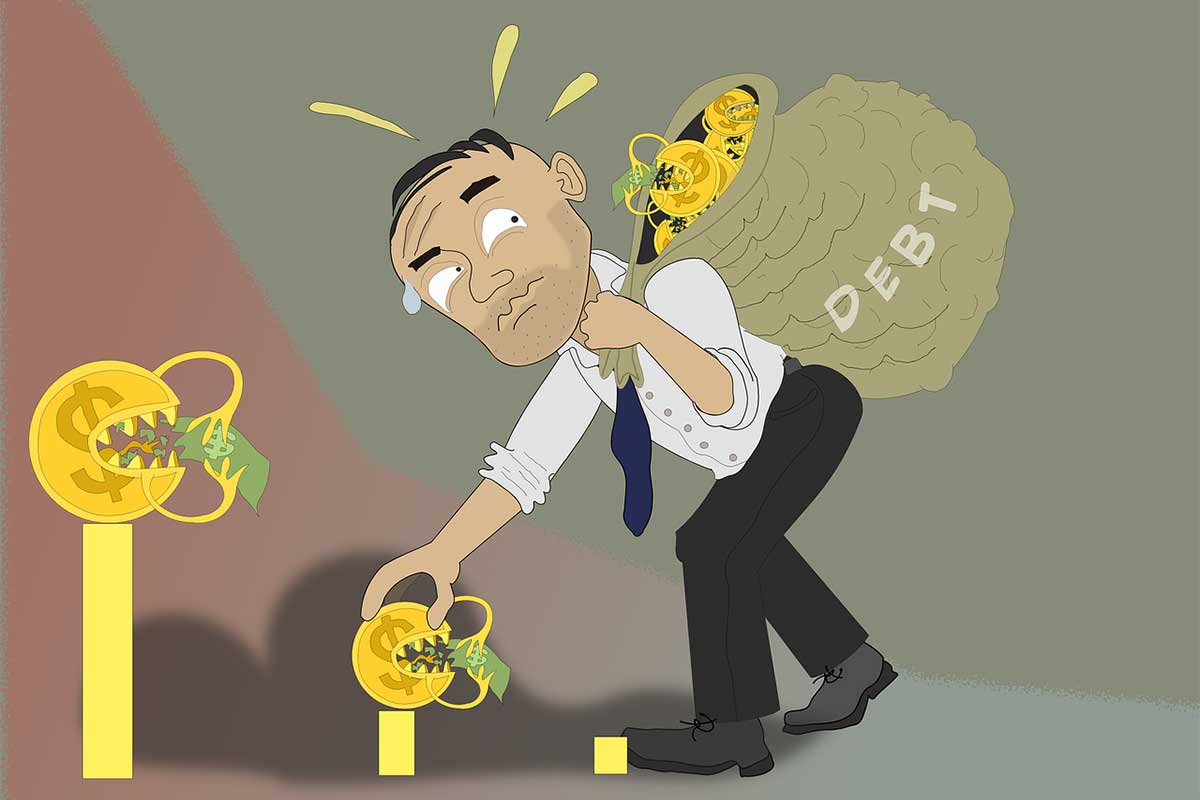In the United States, zombie debt is a term that describes old debts that have been sold or transferred from one creditor to another. These debts are often difficult for consumers to identify because they may have already been paid off or discharged in bankruptcy. Unfortunately, many of these creditors will try to collect on these debts anyway, and it can be difficult for consumers to know how best to deal with them.

Dealing with zombie debt can be stressful and confusing, but state residents have rights and strategies to protect themselves. This blog post delves into the top strategies for dealing with zombie debt in California, providing valuable insights to help individuals navigate and address these challenging situations. Before diving into strategy, it’s essential to understand what constitutes zombie debt and the laws surrounding it.
Statute of Limitations in California
In California, the statute of limitations for most consumer debts, such as credit card debt, is four years from the date of the last payment or default. After the statute of limitations expires, debt collectors cannot sue consumers to collect the debt.
Know Your Rights
Understanding your rights as a consumer is crucial when dealing with zombie debt. California provides specific protections under the California Fair Debt Collection Practices Act (FDCPA) and the Rosenthal Fair Debt Collection Practices Act (RFDCPA).
FDCPA and RFDCPA
The FDCPA and RFDCPA prohibit debt collectors from using deceptive, abusive, or unfair practices when attempting to collect a debt. These laws outline your rights, such as the right to dispute the debt and request verification, the right to be free from harassment, and the right to sue debt collectors for violations.
Documentation and Verification
When a debt collector contacts you regarding zombie debt, request written verification of the debt, including details about the original creditor and the amount owed. Debt collectors must provide this information within 30 days of your request.
Strategies for Dealing with Zombie Debt
Now that you know the basics, let’s explore practical strategies for handling zombie debt in California.
Verify the Debt
As mentioned earlier, always request written verification of the debt when contacted by a debt collector. This ensures that the debt is legitimate and within the statute of limitations. If the debt cannot be verified, it is likely zombie debt and unenforceable.
Do Not Admit or Make Payments
Avoid admitting to the debt or making any payments without consulting an attorney or understanding the implications. Acknowledging or paying for zombie debt can restart the statute of limitations or revive the debt, making it legally enforceable again.
Dispute the Debt
If you believe the debt is a zombie or disagree with the amount claimed, you can dispute the debt with the debt collector. Send a written dispute letter requesting validation of the debt and explaining your reasons for the dispute. Debt collectors must cease collection efforts until the debt is validated.
Seek Legal Assistance
If you encounter difficulties or face aggressive tactics from debt collectors, consulting with an experienced consumer rights attorney may be beneficial. They can provide guidance, negotiate on your behalf, and protect your rights under the FDCPA and RFDCPA.
Protecting Yourself from Zombie Debt
While dealing with zombie debt can be challenging, there are proactive measures you can take to protect yourself and avoid future issues.
Maintain Accurate Financial Records
Keep detailed records of your financial transactions, including payments, receipts, and account statements. These records serve as evidence and can help dispute inaccurate claims or resurrected debts.
Monitor Your Credit Report
Regularly review your credit report to ensure that zombie debts or inaccurate information do not appear. If you find any discrepancies, dispute them with the credit reporting agencies to have them corrected or removed.
Be Cautious with Communication
When dealing with debt collectors, be cautious about what you say and with whom you communicate. Keep a record of all communications, including dates, times, and the names of individuals you interact with.
Seeking Legal Remedies
In cases where debt collectors violate your rights or engage in abusive or unfair practices, you may be entitled to legal remedies. Consult with an attorney experienced in consumer law to explore your options and potentially file a lawsuit against the debt collector.
Conclusion
Navigating zombie debt in California can be overwhelming, but armed with knowledge and the right strategies, individuals can protect themselves from abusive debt collection practices. Understanding your rights, verifying debts, disputing inaccuracies, and seeking legal assistance when necessary are key steps to take. Remember to maintain accurate financial records, monitor your credit report regularly, and be cautious when communicating with debt collectors. Taking proactive measures and staying informed can effectively deal with zombie debt and safeguard your financial well-being.









